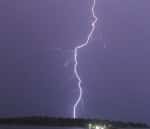Ditching the mains power grid altogether has been looking increasingly attractive to some Ergon Energy customers.
A Queensland Government-owned corporation, Ergon Energy services regional Queensland; which covers around 97% of the state – approximately 1.7 million square kilometres. It’s the only show in town for many its customers.
In 2012/13, the service charge for tariff 11 customers was 26.2 cents a day. The service charge covers costs that may not depend on actual energy usage, such as those associated with reading an electricity meter or customer administration. It’s a charge that cannot be avoided.
At 26 cents, Ergon said the service charge “was considerably less than the actual fixed cost per customer (79 cents)”. This led to the beginning of increases.
In 2013/14, the service charge jumped to 50.2 cents a day; then increased again to 91.755 cents a day from July 1 this year. In 2012/13; the annual total for the service charge was just $95.63. This year (2014/15) it will have skyrocketed to $334.90.
That may not be the end of it. It is the goal of the Queensland Competition Authority to “rebalance” (PDF) the tariff 11 and 12 service charges by July 1, 2015.
The Tariff 12 service charge is currently 128.270 cents a day. To balance the two; and assuming other factors don’t increase or decrease the charges, this means Tariff 11 could increase to approximately $1.10 a day from next July. However, it may be higher as Tariff 12’s service charge didn’t decrease with the last round of “rebalancing” – it actually increased by a few cents.
Ergon customers can switch to Tariff 12, which offer cheaper rates depending on how much and when customers use electricity, but Ergon warns “not everyone will save on their electricity bill if they move from Tariff 11 to Tariff 12”.
Ergon Energy is not a charity, but nor does it run at a loss. Its 2013 Annual Stakeholder Report shows it delivered an above target $434 million profit. As we reported last year, a major beneficiary of power bill hikes is the Queensland Government. An analysis carried out in 2013 found the Government was receiving a compounding 114% growth in financial returns every year. Ergon customers may want to discuss the issue with their local MP.
The service charge is unavoidable, but going solar can take much of the overall sting out of bills. In addition to on-site use of electricity produced, Ergon currently pays 9.07 cents per kilowatt hour for surplus electricity generated. This can help offset the service charge and for those who have had enough of being dependent on the mains grid; there’s also the prospect of installing an energy storage system to ditch the grid altogether at a later date.
While still out of reach of many, energy storage is starting to rapidly decrease in price. For example, the PowerLegato can operate independent of the grid and the 7.2kWh unit is priced by Energy Matters at $3,250 per kilowatt hour of storage; inclusive of GST. In addition to lithium-ion battery systems; there are other energy storage options available from Energy Matters.
For business customers, the fixed fee aspect is now even more troublesome. The Australian Solar Council says changes provide no positive incentive for some businesses to become more energy efficient.
RenewEconomy’s Giles Parkinson reports some businesses are being hit with daily service charges that have jumped from $42 a day to $488, which is rumoured to have been “designed to kill the roll-out of commercial-scale rooftop solar across the state.” However, as commercial scale energy storage becomes more affordable; the situation may just translate to mass grid defections.












































